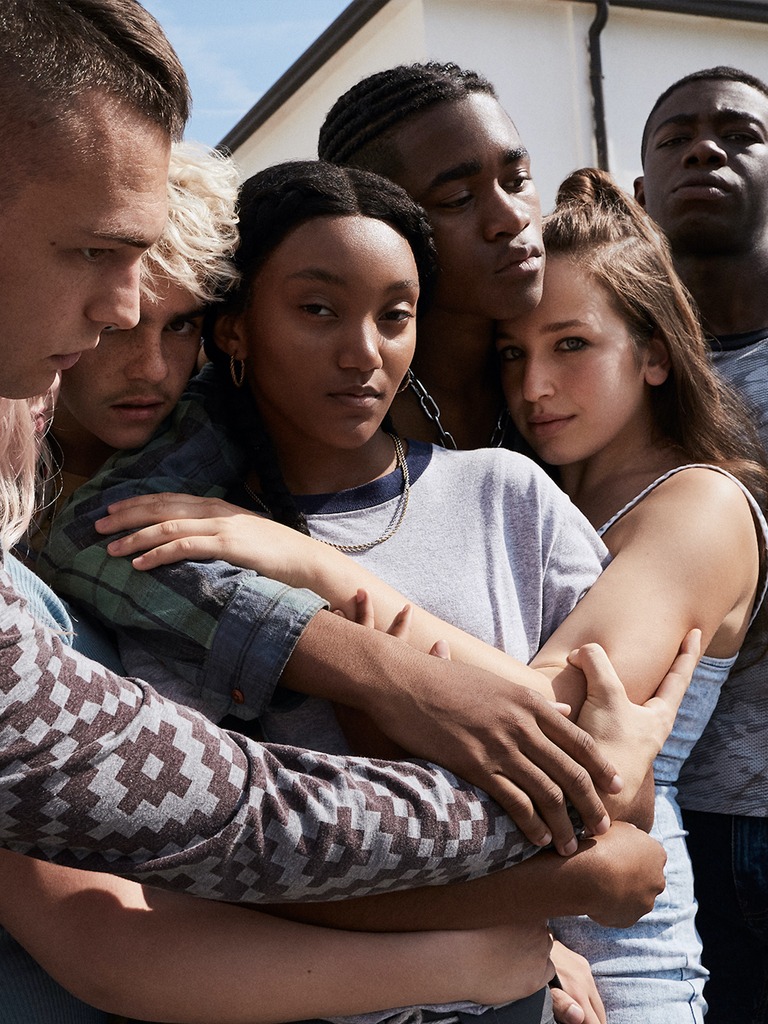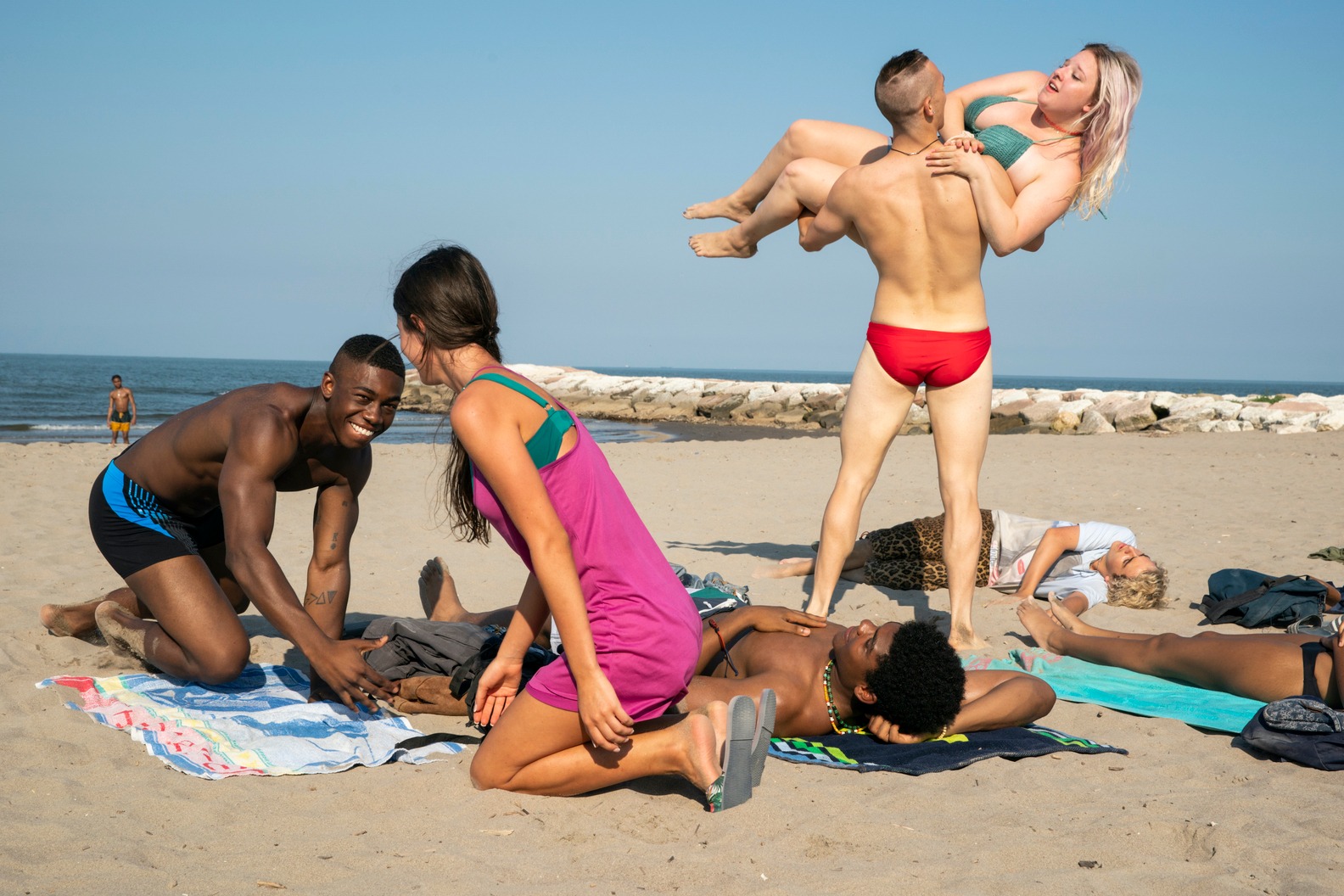During our adolescence, there are encounters we have that make us confront a part of ourselves we maybe never knew of. In the case of We Are Who We Are’s Fraser Wilson — a bratty 14-year-old kid from the US who has wound up joining his two mothers in a military camp in Italy — it comes as he wanders into the shower block for the men on site. We see what he sees: the male physique, naked in many forms. And then his reaction. For some time afterwards, quite what he made of it isn’t clear. Only that he saw it and that it, somehow, unveiled a part of his being he was, and is, unfamiliar with.
The signals of queerness in art are always more nuanced than what you are met with in standard, Americanised rom-coms. The meet-cutes aren’t limited to bars or coffee shops, or accidentally bumping into each other on the street. They are often more coded: brief nervous glances in fear of overstepping boundaries. Queerness is not something to be ashamed of, and the director of HBO’s We Are Who We Are, the brilliant Luca Guadagnino, knows this — but the mere confrontation of the subject is a gnarly obstacle to overcome. It takes time and calculation for some, but life and growing up goes on around it. This show does an exemplary job of showing that balance.
Queerness is part of the DNA of We Are Who We Are, a show that treats the complex identities of American teenagers growing up in a military camp in Italy with the kind of precious nonchalance its title suggests. It doesn’t scrutinise or demonise any of its young characters; they just are. Fraser, played by It star Jack Dylan Grazer, is a fiery, skittish kid who both yearns for attention and is happy being a weird outcast. He walks around the camp in streetwear, always wearing headphones, and frequently butts heads with his biological mother, played by Chloë Sevigny. Then there’s his neighbour, Caitlin Poythress, played by newcomer Jordan Kristine Seamón. A hard-working teenage girl, growing up under the guidance of a conservative father (Kid Cudi) whose views and influence she tries to abscond. As she explores her gender, Fraser explores his sexuality, socialising with a large group of kids who are, perhaps more internally, confronting similar obstacles: their race; skirting the stereotypes of their gender; the realities of growing up. The notion of identity is deep-rooted and not up for debate: the idea that any of these things may be mere teenage phases is never put forth.

That in itself is a testament to the grace and respect that Luca navigates these landscapes with. There are a handful of directors who understand the potential and incandescence of youth in cinema: Céline Sciamma, Sean Baker, Barry Jenkins to name a few. Here, Luca joins them. Over eight episodes, which unravel with no sense of urgency or traditional series arcs, we delve deeper into the world these kids are living in: rocky coastlines; strangely clinical American supermarkets and stores built within the confines of the camp; the slightly ethereal lure of Italian life, slow and languid, unfurling outside. There are few instances of these two juxtaposing lifestyles overlapping in the show. While the culture of late afternoon, al fresco wine-drinking seems alien to American kids, in the fourth episode, they dance and strip down to next to nothing in the weird, palatial setting of a white, luxury villa. Some are playing Playstation and others are passionately kissing, and Frazer sits moping, and watching it all unfold.
The conversations here are fleeting, and conflict is resolved almost without even being addressed. Instead, We Are Who We Are is meant to be viewed from afar: an atmospheric watercolour portrait of teenage outcasts, rebels and those raring to fit in, and it captures the spirit of that sensation so well. It’s like Euphoria on Valium; Call Me by Your Name laced with licks of Larry Clark’s Kids. The set up is, at times, so familiar to Call Me by Your Name that you half expect Elio and Oliver to walk into frame, like peripheral characters who’ve been frozen in time.
“The set up is, at times, so familiar to Call Me by Your Name that you half expect Elio and Oliver to walk into frame, like peripheral characters who’ve been frozen in time.”
Part of what causes some people to disagree with or dislike Luca’s queer works is the flagrant truthfulness from which they are built. The “age gap”, present in Call Me by Your Name, is also present here — albeit one of fondness and one-sided infatuation. During his first months on the camp, Fraser locks eyes with an older soldier who becomes his object of affection throughout the series. They share a love for Ocean Vuong books, and cross paths frequently, and the disorienting conversations this pulls up (is this infatuation or admiration?) is one the viewer is asked to make sense of themselves. While seeing such ideas unfold on screen might make the prudish uncomfortable, it’s a reflection of reality. Almost everyone was blindsided by the beauty and maturity of someone older than them as a teen.
Luca Guadagnino’s filmography is, in the eyes of his critics, spotty. There are as many people who loathed the strange grandeur of A Bigger Splash as there are those who adored it. And Suspiria was a horror remake that was either a bastardisation or a stunning homage to the original, depending on who you spoke to. But it’s hard to resist the grit-laced beauty of We Are Who We Are, or admire the audacity with which Luca has thrown himself, his characters and his actors into this eight-hour saga of displaced America and the pangs of growing up.
We Are Who We Are started on HBO last night, and will be streamed on BBC iPlayer later in 2020.
